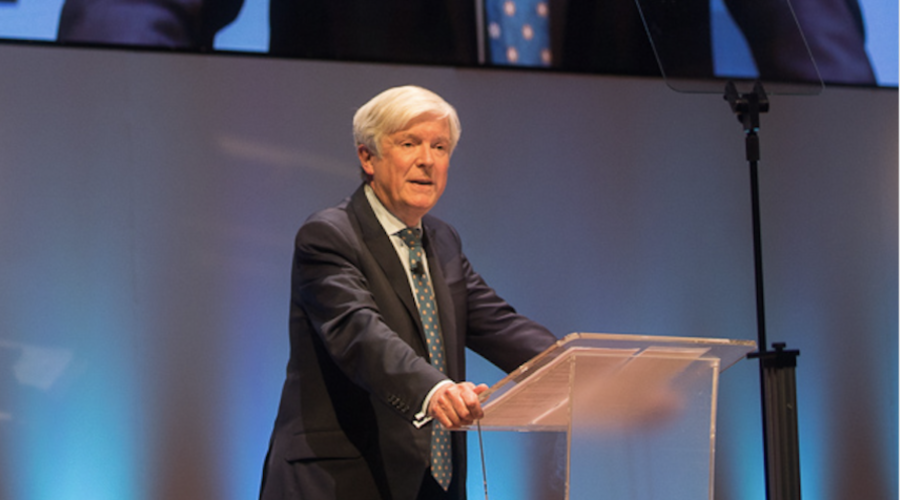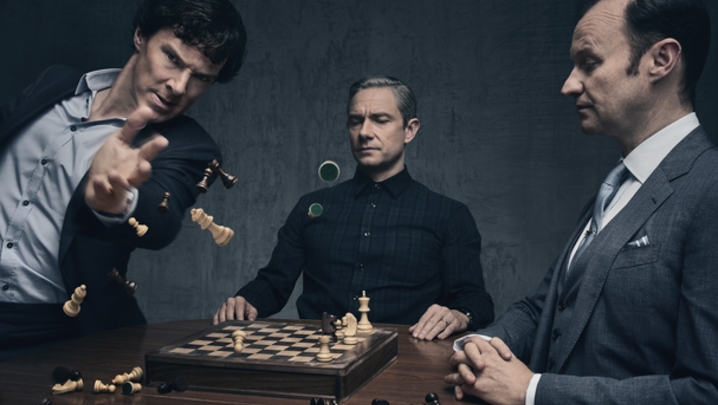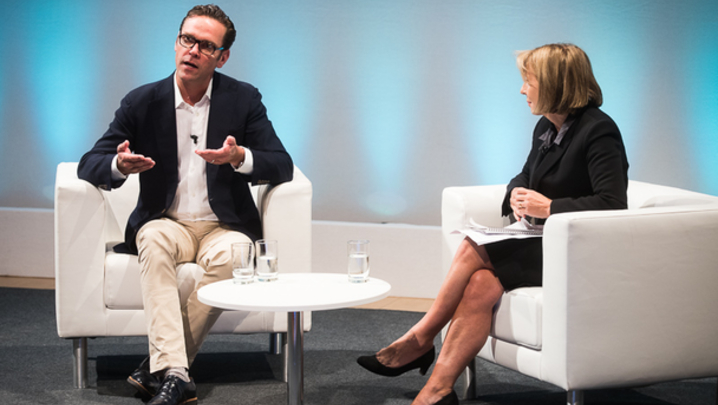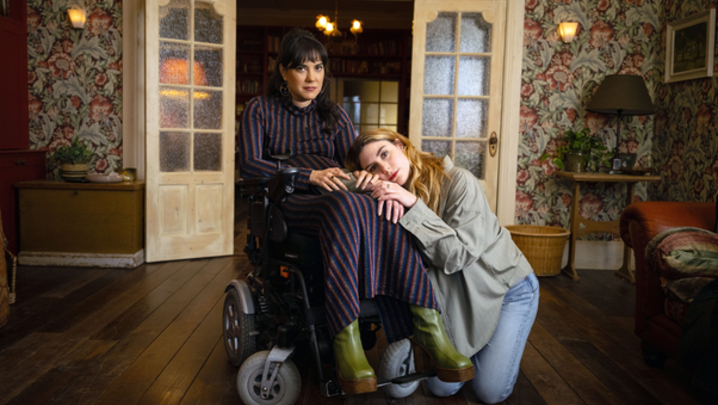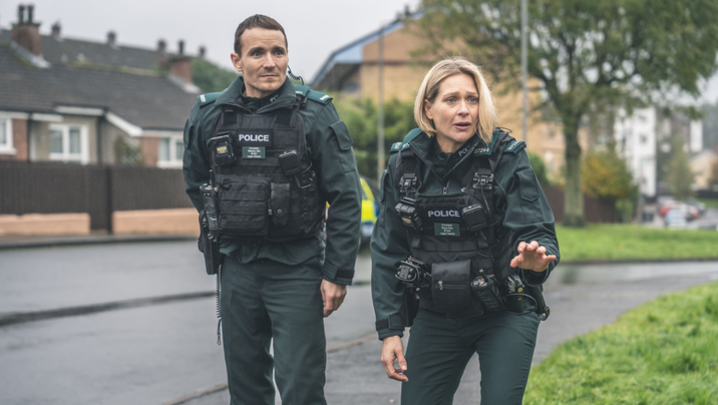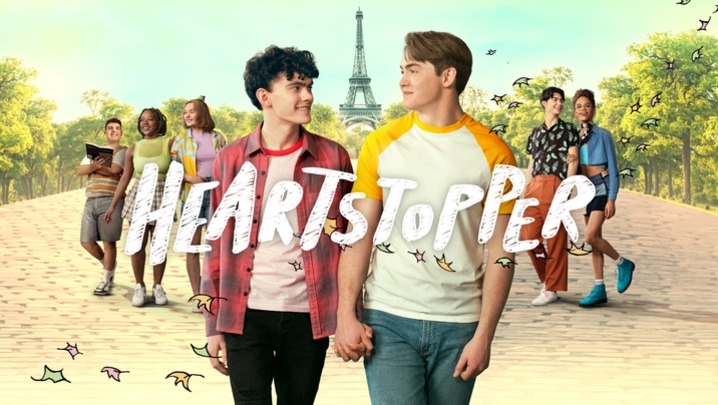BBC's Director-General Tony Hall delivers his speech at the RTS London Conference 2018.
Introduction
In 1995 Bill Gates published a book on how he saw the future of digital technology. How would the personal computer revolution change things?
But there was a problem. After writing The Road Ahead, before it reached the bookstores, he realised he’d got it wrong.
Well, perhaps not wrong exactly, but he appreciated that in mapping the road ahead he hadn’t properly accounted for the internet.
In 1996 when the paperback edition appeared, the book had a new subtitle. “Completely Revised and up-to-date”.
In that same book appears Gates’s famous quote. “We always overestimate the change that will occur in the next two years, and underestimate the change that will occur in the next ten.”
My message today is a simple one. We can’t afford to do that now. There’s too much at stake.
The fundamentals of our business have been changing so rapidly and the long-term consequences are so profound that, for all the accolades we might get for today’s programmes or tomorrow’s schedules, that’s not what we will all be remembered for.
What we will be judged on is how well we understood the Big Shift. And how well we responded to it.
That Shift is already happening. Much of it will not be news to people in this room. But it’s worth taking a moment to reflect on how much is changing.
The Big Shift
Here are two central facts.
First fact. Global media giants have created new definitions of market scale.
Ten years ago, when the App Store first launched, not a single member of Facebook, Amazon, Apple, Netflix and Google were among the top 30 most valuable companies in the world. Fast forward ten years, that group of five has increased in value by about 3 trillion dollars. All but one is now ranked in the top 10 of the most valuable companies in the world.
Second fact. Audiences have changed. Bodyguard may have us all on the edge of our seats but for young British audiences, Netflix is now roughly the same size as Channel 4 and close to the size of BBC television and iPlayer together.
Music streaming is getting bigger and bigger - and that’s partly why listening to live radio across the whole industry is down by around 20% in the last 10 years.
And underpinning both of these is technological change. Changes in communication technology, changes in computer storage, changes in interfaces, changes in the size and shape and price of devices.
Does anyone think these changes are going to stop? Or even slow?
The questions answer themselves. The Big Shift is already upon us, and we have got to run with it.
Opportunity and Challenge
This is both an opportunity and a challenge.
The opportunity is obvious.
You can see it already. For people who use media - and that’s everyone - this is a remarkable time.
On screen, choice has never been so spectacular.
Every day brings new ways of producing, distributing and enjoying content. The same is true in audio.
So, as I say, the opportunity is obvious.
But so is the challenge.
Not just to us as an industry but more broadly to society.
Let’s start with this. There may be more content, but it won’t necessarily be British content.
Here’s how much Netflix is spending this year on content. Eight billion dollars. Here’s how much Amazon is spending. Five billion.
And here’s how much Britain’s public service broadcasters are spending on new programmes. Two and a half billion pounds. All together.
And while their spending is going up, ours is going down. In those ten years, while the Big Shift was getting going, Ofcom’s data shows that the public service broadcasters reduced their annual spending on new British content by around £700m in real terms. If you go back to 2004, the fall is around a billion pounds amongst us.
As the BBC has been forced to spend less because of a cut in the licence fee, so the other PSBs have spent less too.
Netflix and Amazon are not making up the difference. Ofcom’s data suggests that less than 10% of the catalogues of Netflix and Amazon are comprised of content produced in the UK. Two separate recent estimates have suggested their investment into new UK programmes is around £150m a year.
Co-production helped make up the difference for a while, but those deals are becoming more rare. You can argue about the size of the future gap, but there’s no doubt there is a gap today in funding public service broadcasting, and there’s going to be one in the future.
This isn’t just an issue for us economically, commercially or as institutions. There is an impact on society.
The content we produce is not just an ordinary consumer good. It helps shape our society. It brings people together, it helps us understand each other and creates an incredibly powerful shared narrative.
And people feel that deeply. They want content that is relevant to their lives, and they want to see people like them on screen. We all know this instinctively but if we didn’t Ofcom data shows it clearly.
So how will we be able to feed this hunger after the Big Shift?
We can’t expect the global media giants to do so. That’s not how they work and it’s not what they are there for.
So this is a challenge we have to meet ourselves. We can - and we will do.
Then there is the challenge that - with all the key changes in technology - come new social problems.
We can see some of it already.
Fake news, online disinformation - and online bullying for that matter - has not made our society better.
In country after country across the world, we see compelling evidence of direct manipulation of our democracies and a deliberate undermining of traditional truths and values.
Finally there is this. Britain’s media output is a source of soft power and global persuasion. We are going to need it more than ever at a moment where we are reshaping our relations with the world. It’s a beacon for liberty and democracy and truth that shines bright.
It can and must shine as brightly in the future.
So this then is the opportunity and the challenge.
And I see grasping both as the big test and the big chance for all of us - but especially the BBC.
The growing need for the BBC
The media world has changed so much since 1922 when the BBC was founded. There are so many magnificent alternatives and brilliant partners. There is much wonderful diversity and choice. There is so much worthy competition and spurs to innovation.
The BBC is no longer alone. It belongs to a community of talent and drive. It has many good neighbours and tries itself to be a good neighbour.
But the BBC is funded by the public and that gives it a special role in this community and a special responsibility. One that I think will be increasingly important.
We have a duty to provide trusted, impartial news and information about the UK and the world.
We have a special duty to make programmes and services about British people and British culture.
And we have a duty to do this for everyone, because in a democracy everyone should have the right to share in the best our culture has to offer.
The front row, the best seat, the finest programmes and services, the most trusted news for everyone.
I will repeat those last words. “For everyone”. This is what public funding allows us to do - to bring the best to each one of us. Because we’re funded by everyone, we feel a moral duty to serve everyone.
Take these things together and it becomes clear what the BBC can offer the country in terms of a response to the Big Shift. And how the BBC needs to continue to develop and adapt in order to be effective in these new circumstances.
We start with the scale and the breadth, the expertise and the ambition to make a realistic response to the growth of the global giants.
But here are the conditions of success.
We must remain true to our mission. We must have the funding that allows us to respond effectively. And we must be able to innovate as audiences change.
What we are going to do
Our response must be to accelerate our work in five key areas.
First, we will have to spend more on the highest-quality content.
We cannot allow any further narrowing of the range of distinctive British content. Bodyguard, Three Girls, Mother’s Day - I could go on - tell stories that are connecting to our audiences.
Second, we need to keep reinventing our services. I spoke to our teams last week about a major reshaping of BBC online. At present we are number three in the UK. We must keep it that way. It’s the only UK website in the top five and, perhaps most telling of all, it’s the only one that’s powered by its own content. That’s why we’re focussing on just eight world class services.
We are transforming iPlayer from a catch-up service to a destination, for long form, short form and Live. And we’re changing the way we can all consume radio - with a new audio service BBC Sounds to replace iPlayer radio - to give you easier access to the great British content we make.
Third, we must invest more in children and young adults. We need to safeguard the future of public service broadcasting for coming generations.
Today, young audiences believe in public service broadcasting like all audiences do. They believe in the BBC’s mission.
We reach more than 80% of young adults every week and we are their largest provider of media. They use us for around eight hours a week.
But the next nearest media providers are Spotify and YouTube at over four hours each. This new competition has meant that the time young audiences spend with the BBC has fallen in recent years.
In TV, it’s fallen from well over five hours a week eight years ago, to around three hours. In radio, from six and a half hours a week to around four and a half.
But we know that with the right content and right services we can introduce a new generation to the enduring values of public service broadcasting. And that’s why, for example we’ve put an extra £34 million into content for children.
Fourth, we must help counter threats to democracy globally. These are real.
The plague of disinformation and fake news needs to be challenged not just in the UK, but around the world too. We need a strong BBC to push against fake news and hold those who produce it - at home and abroad - to account. BBC News is trusted across the globe. Sustaining and building on this has to be a priority for our country.
Finally, and most significantly, the BBC should spend more outside London.
Already over 50% of our teams and our spend on commissioning is outside of London. But to truly reflect the whole of the UK in our output, the BBC not only needs to invest more, it needs to do so outside the M25. That will mean more money spent around England and the Nations. And more of our staff will be located outside London. The BBC’s move to Salford is a game-changer - 10 years on the success of MediaCity is something that we need to build on.
This is what we can do for Britain. And it is what the public expects from us: distinctive programmes and products, that reflect their experiences and outlook on life, made available and relevant to everyone - of all ages and demographics.
Why we cannot do this without new investment
But while we believe the BBC’s public mission is as important as ever, and that we can do more for Britain, we do not believe this ambition is sustainable with the resources we have.
High quality production costs. And it costs millions. A decade ago, premium high-end drama might have cost £1 million an hour in today’s money. Premium drama today costs many times that figure routinely.
That has resulted in the BBC needing to spend significantly more just to stand still.
Reinventing our services will also cost more.
We need to continue to invest in technology and product development.
People now expect to be able to watch programmes when they want over a long period of time. To keep up with audience expectations we’ll need to increase the availability of our content for much longer.
These challenges are facing our partners and competitors as well. But these pressures are really intense for the BBC. We have been through a long period of holding back and cutting back. The BBC has made its contribution as the nation sought to get itself back on track financially. But now, is the country going to seize the moment and adapt and invest in the face of what’s going on - or are we just going to sit there and let it wash over us?
Doing nothing is a decision that may look fine tomorrow or the day after. But in two years time, in five years time, in 10 years time it may look more like a grand national error.
Because across the same ten years that the internet giants took over the world, what the BBC can spend from the licence fee on its UK services has been cut by a fifth - £800m - in real terms. It’s the consequence of a decade of top-slicing, and then freezing the licence fee for seven years, and then more top-slicing.
In real terms, that’s meant nearly half a billion pounds out of our annual budget for new TV programmes.
For a period, we were able to manage through self-help and efficiency.
For a decade we have saved the equivalent of four and half percent a year every single year. That track record is - I believe - extraordinary. We spend just 6% of our controllable costs on running the organisation. An independent report we’re publishing shortly puts us in the top quartile of media companies and regulated organisations in the UK.
It’s a testament to the care and hard work of our teams that we have been able to cope with reduced funding while continuing to deliver great programmes and services.
It means the BBC continues to be enormously good value for money. Each hour of BBC TV watched by a household costs it 8 pence. For an equivalent SVOD service that’s around 17 pence. And for an equivalent pay TV service it starts at 35 pence per hour.
It’s a similar story in audio. Each hour of BBC radio listening costs each household about 2 pence. For ad-free music streaming services it’s around 10 pence.
But the cracks are beginning to show. More cuts have been taking place - over a far longer period than any other in the BBC’s history.
It’s led to the closure of BBC Three as a broadcast channel, and a £30m cut from its content budget. It’s meant the loss of Formula One coverage, the sharing of the Six Nations tournament. Great programmes have been decommissioned or lost to other broadcasters, purely to meet savings targets.
We could, of course, continue to do less. But the public don’t like cuts to BBC services. It’s their BBC and they want more from us, not less. And - as I’ve been arguing - if we do less, the creative economy suffers.
Instead, I believe the BBC needs to reinvest, to sustain our mission and purposes. To do more for Britain.
Conclusion
So while we believe the BBC’s public mission is as important as ever, we do not believe what we currently do is sustainable with the resources we have.
For the BBC to do the most for Britain and the most good for the British public, Britain needs to support the BBC.
But we must help ourselves first.
We will continue to push further on efficiency and savings.
We need to move faster on our plans for iPlayer, for BBC Sounds and for young audiences. I have challenged the organisation to find £100 million a year from our current budgets to invest in these priorities from next April.
All of this comes at a time when the BBC is also faced with taking on the full cost of free TV licences for those over 75. This has potential implications both for the BBC’s funding and for licence holders. The concession as it’s currently formulated comes to an end in 2020. The BBC Board will have to consult on possible options and then decide. It could be the same; it could be different. There are a variety of options.
But beyond the steps the BBC may take, Britain also needs to do more to support the broader PSB ecology. We have great relationships with companies like Google and Apple. It’s important we work with them now and in the future. But it cannot be right that the UK’s media industry is competing against global giants with one hand tied behind its back. In so many ways - prominence, competition rules, advertising, taxation, content regulation, terms of trade, production quotas - one set of rules applies to UK companies, and barely any apply to the new giants. That needs rebalancing, too. We stand ready to help, where we can.
The big picture is a simple one: the public believes in public service broadcasting and a strong BBC.
I have huge confidence in our future.
We know we can do more for Britain. Investment in great content that supports the creative economy. World-class online services. More for children and young adults. Trust and accuracy in news. More outside London.
And to be clear: I am not among the doubters who say you can’t compete against the might of the global giants. I believe the opposite. They have their job to do, their services to provide. We have ours. Scale is not everything. Smaller can be beautiful. Let’s in our own way, emulate Sir Francis Drake against an Armada of competitors. Agile, creative, bold, taking risks, backing talent and passionate for what we believe in.
Yes the Big Shift is happening - but with the right backing, we can win.


